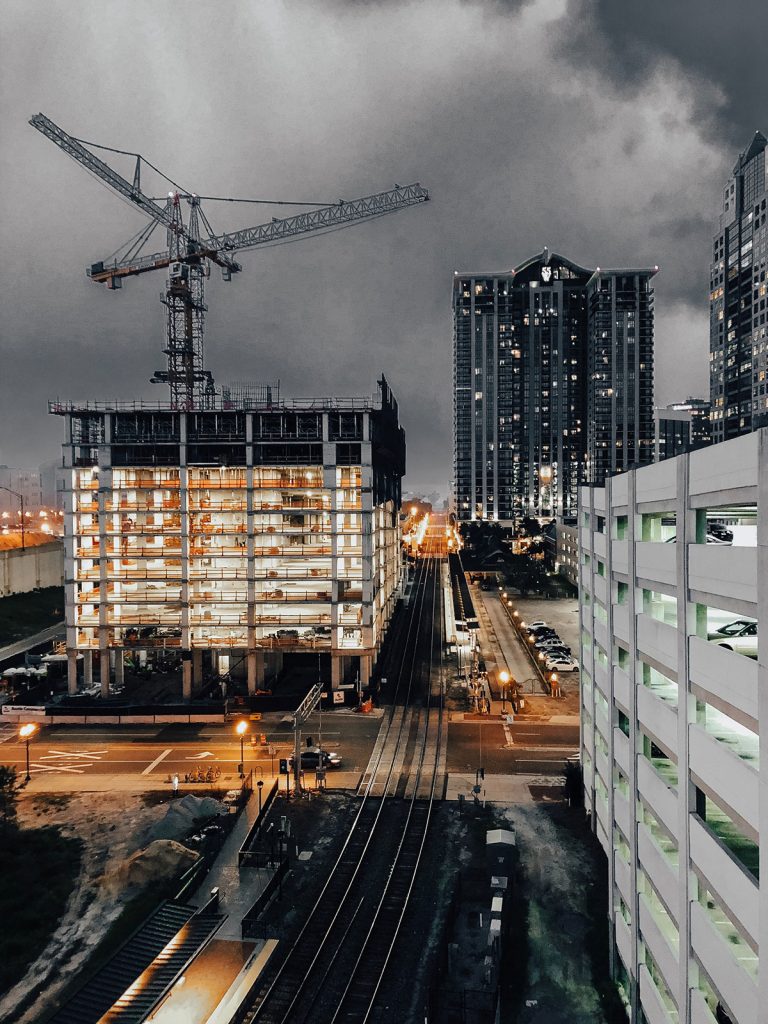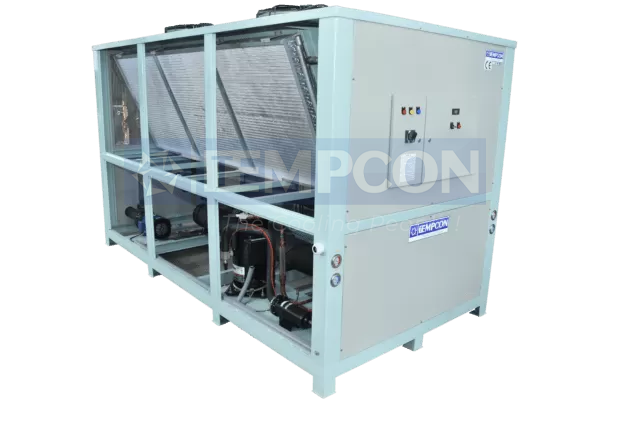The right chiller will serve the purpose of negating internal heat gain in your industrial setup.
The two conventional ones are water-cooled and air-cooled. Confused to choose the right one?
Worry not as we have prepared a comprehensive guide to help you choose the best one among air-cooled and water-cooled industrial chillers.
Before that, let us know what kind of chillers they are.



What is an Air-cooled Industrial Chiller?
Air-cooled industrial chillers use cooled air to neutralise the internal heat gain generated in an enclosed space. This chiller comprises:
- A compressor
- An evaporator
- A condenser
- A fan
- Outdoor installations, etc
Such chillers are used in different industrial setups ranging from metal works to manufacturing.
What is a Water-cooled Industrial Chiller?
Water-cooled industrial chillers are advanced cooling units that use:
- A compressor
- An evaporator
- A condenser
- Cooling towers
- Expansion valves
- Pumps, etc
They are generally used in large-scale industrial applications.
Things to Consider Finding the Right Chiller
We now know what these industrial chillers are. These factors will help you choose the most suitable one.
Cooling Capacity
A water-cooled chiller is installed in factories, large buildings, and data centres as they can handle higher cooling demands.
Air-cooled chillers are installed in small to medium-sized industrial setups. Such chillers are designed for low to moderate cooling requirements.
Space Requirements
Water-cooled industrial chillers require indoor placement with enough space to house equipment like cooling towers and pumps. Hence, these chillers are not suitable for industrial units with limited indoor space.
Air-cooled chillers have outdoor components and can fit easily in small facilities or spaces. The components are compact enough to fit in small spaces.
Initial Investment
Water-cooled chillers attract higher upfront costs due to additional components like cooling towers, pumps, and piping systems. These chillers are designed for bigger and continuous cooling operations.
Air-cooled chillers incur comparatively less investment in terms of components and installation requirements. Their efficiency and power usage depend on climatic conditions though.
Energy Efficiency
Water-cooled chillers generally require more energy to run due to their operational requirements. However, their operations are less influenced by ambient conditions as they run on water stored.
Air-cooled chillers are less efficient when ambient air is considered. Their operational costs increase in hot and humid environments.
Environmental Impact
Water-cooled chillers require a consistent water source and a proper water treatment setup. Such chillers increase water usage but might leave a lower carbon footprint due to higher efficiency even at peak seasons.
Air-cooled chillers don’t need water but their energy consumption increases at peak seasons. It results in a higher carbon footprint.
Noise Level
Water-cooled chillers produce less noise than air-cooled ones as the heavy components are installed outside an industrial unit.
Air chillers produce more noise than water-cooled chillers as they have large fans and other components.
Choosing the Perfect Industrial Chiller for Your Needs
Considering this vivid comparison, you can understand how these chillers work. Apart from these factors, your budget, available space, and environmental conditions will determine which chiller to go with.
For further assistance, contact Tempcon, the best industrial chiller manufacturer, and make an informed decision.



